On Saturday, October 27th, a man burst into a synagogue during a circumcision ceremony for two twin baby boys. They were surrounded by their two fathers, family friends, those gathered for Shabbat services, and many others in Squirrel Hill, a historically Jewish neighborhood in Pittsburgh, Pennsylvania. The man, Robert Bowers, shouted, “All Jews must die!” and opened fire with an AR-15 and three Glock .357 handguns. Eleven people died and six more were wounded, including four police officers. Finally, Bowers surrendered. He is now awaiting trial.
Jewish people across America—and the world—mourned publicly, in vigils, marches, and private gatherings. President Donald Trump flew to Pittsburgh, his Jewish son-in-law Jared Kushner and daughter Ivanka in tow, where he was met with dramatic opposition from many, some of whom blamed him for the recent rise of hate crimes and anti-Semitism.
But Pittsburgh isn’t the only site of anti-Semitism this week—it’s been global. Days ago, Jewish philanthropist George Soros was mailed a pipe bomb, and a Fox News guest accused him of influencing the Department of State (an allegation rooted in anti-Semitic conspiracy theories). A Jewish cemetery in New Jersey was vandalized, a synagogue in Canada was damaged, a California synagogue was spray-painted with profanity, cars were tagged with slurs and swastikas in another New Jersey community, a Jewish community center in France was graffitied with a reference to the Pittsburgh attack, and comedian Ilana Glazer canceled an event after violent, anti-Semitic graffiti was found inside the synagogue hosting it.

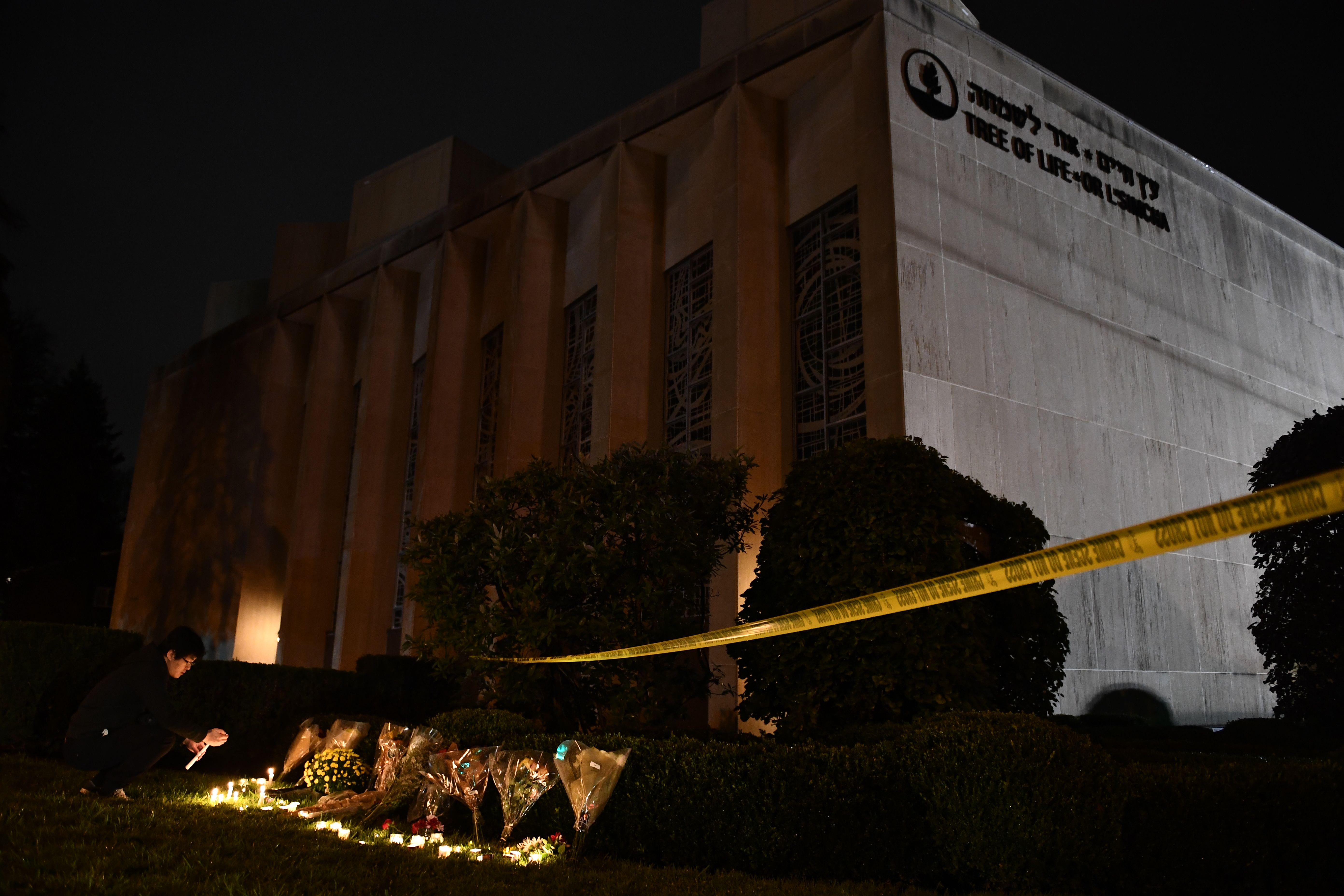
(Photo: Brendan Smialowski/AFP/Getty Images)
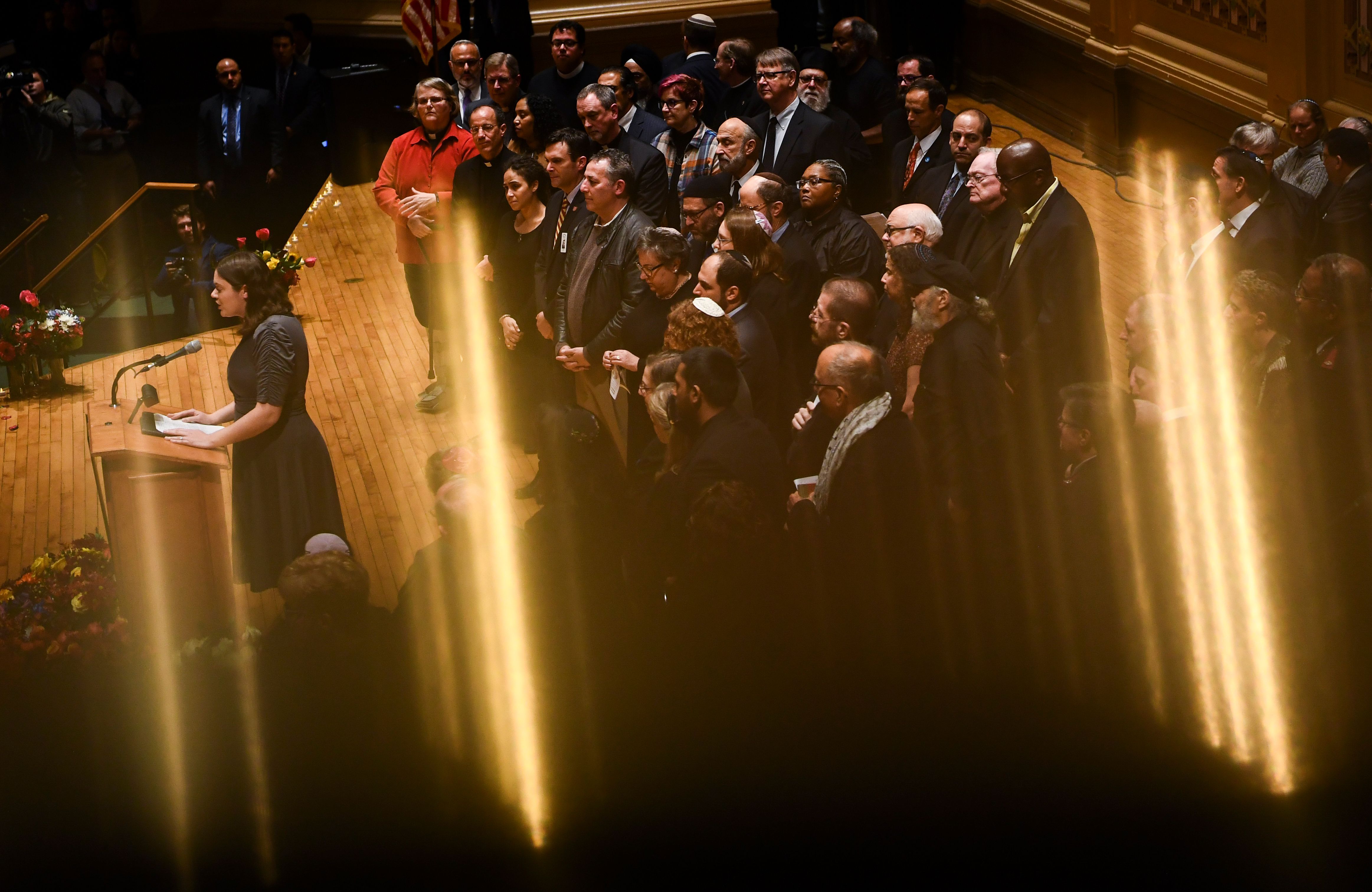
(Photo: Brendan Smialowski/AFP/Getty Images)
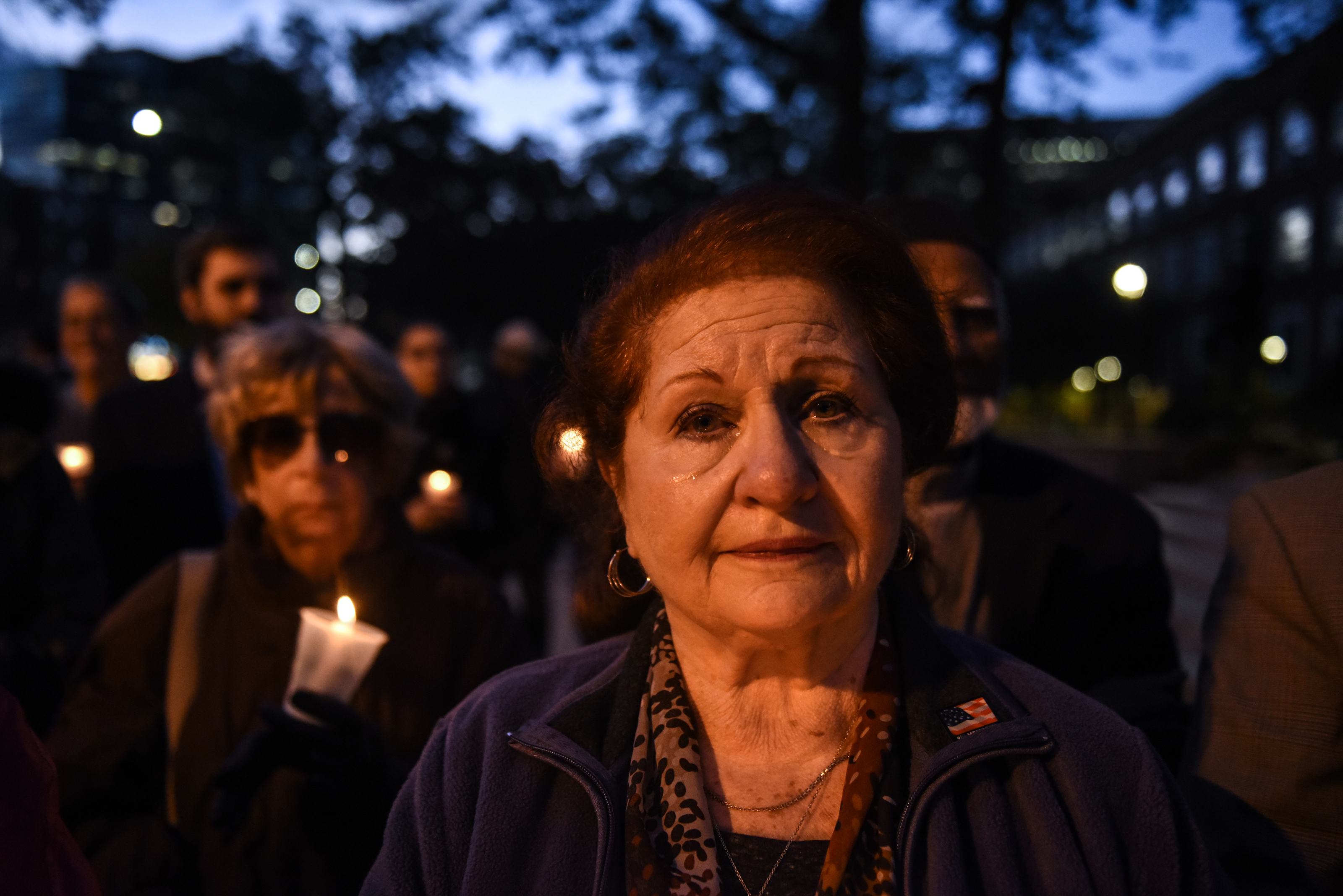
(Photo: Stephanie Keith/Getty Images)
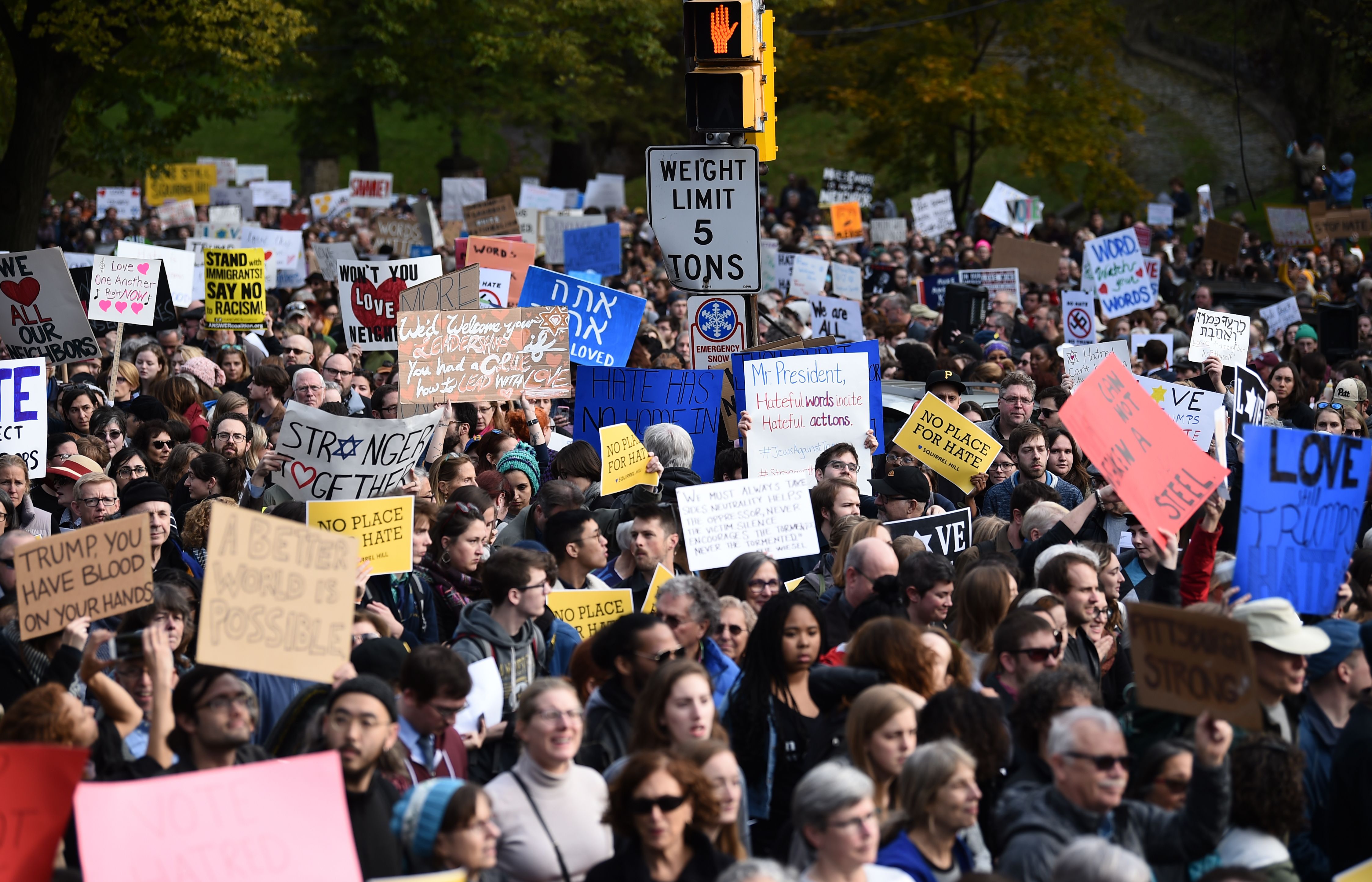
(Photo: Brendan Smialowski/AFP/Getty Images)
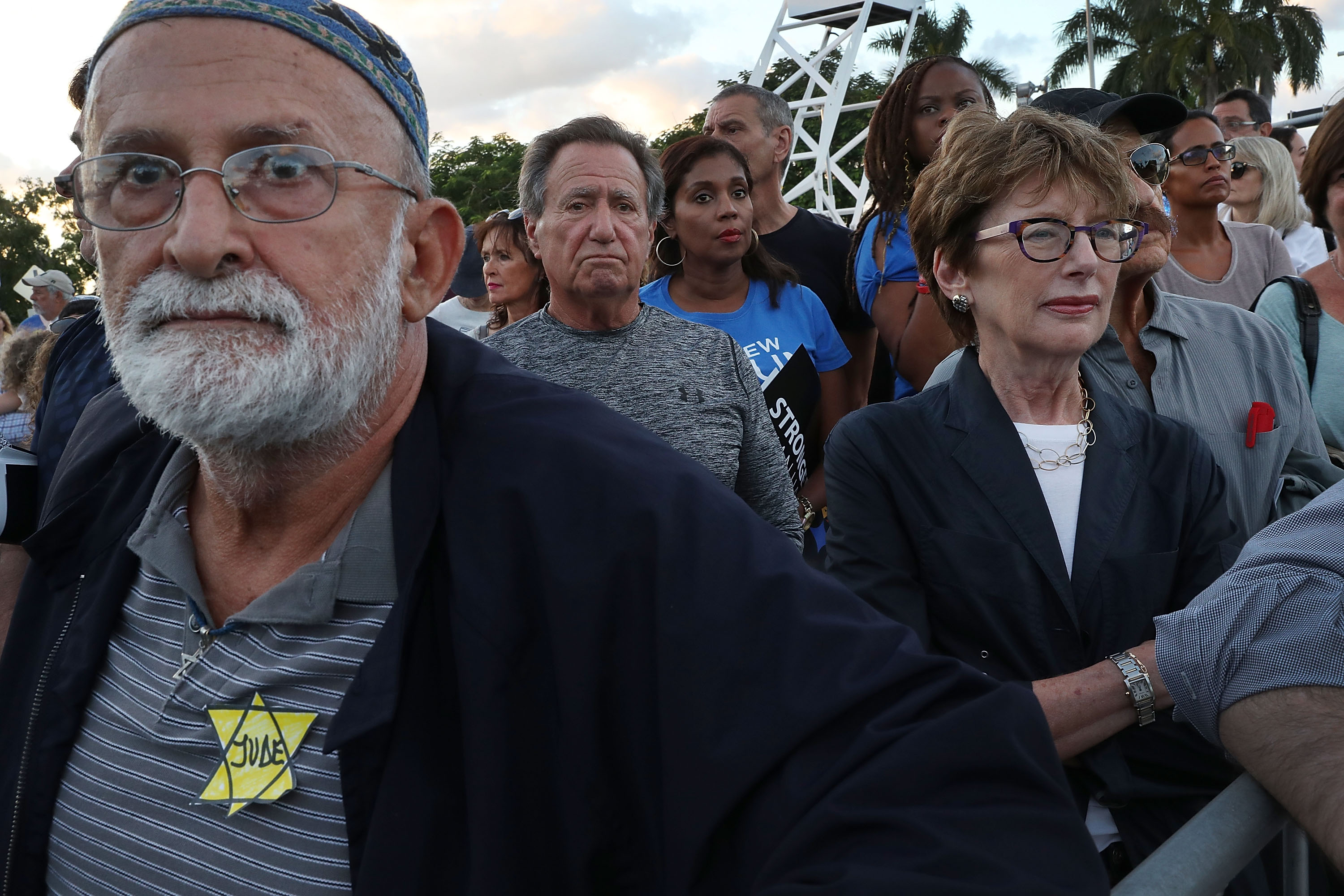
(Photo: Joe Raedle/Getty Images)

(Photo: Jeff Swensen/Getty Images)
More From Pacific Standard on Anti-Semitism
- How the Pittsburgh Massacre Fits Into America’s Long History of Anti-Semitism
- Remembering When Anti-Semitic Violence Had the Power to Shock
- How to Fight Anti-Semitism in the Trump Era
- Anti-Semitic Incidents in the U.S. Rose 57 Percent in 2017
- Israel Doesn’t Show Us How to Fight Fascism—but the Diaspora Can
- To Discuss the Pittsburgh Synagogue Shooting, We Have to Discuss Trump





